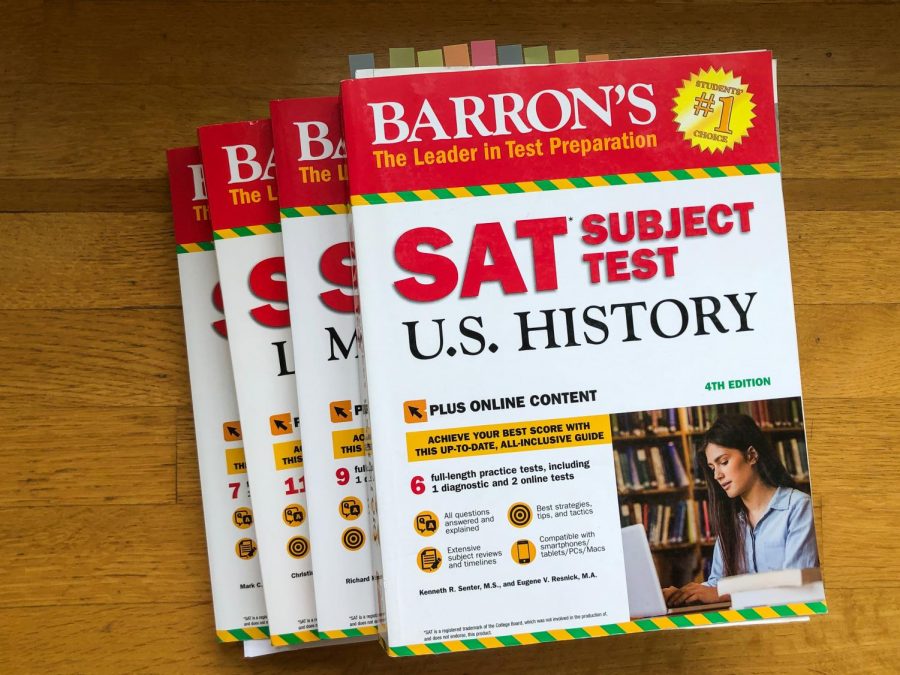Opinion: Should SAT Subject Tests be discontinued?
February 23, 2021
On Jan. 19, College Board came out with surprising news: their long-standing SAT subject tests, as well as the essay portion of the SAT, have been discontinued. This decision comes after recent discontent surrounding the lack of access for all high school students.
College Board had previously offered 20 subject tests, ranging from math and science to language. Each test was an hour long, though the number of questions and test format varied from subject to subject. All tests were scored out of 800. According to the Georgetown Voice, Georgetown University’s student-led newspaper, the university “strongly recommend[ed]” subject tests but changed this stance during early 2020.
Furthermore, the subject tests were not widely available for many students because of a myriad of reasons: lack of information surrounding the tests, lack of accessibility, additional cost on top of a normal SAT or ACT and in prep books, and unequal standard preparation for the tests.
I signed up to take four subject tests at the start of the year, which I felt was a tad overkill for standardized tests. According to College Board’s website, these tests would help elevate a college application by showcasing understanding and proficiency in certain subjects that weren’t covered on the SAT or ACT.
I had already taken U.S. history and chemistry classes as part of the Branson curriculum. It had seemed natural that these two subjects would be the ones I would take for the subject tests. In preparing for them, however, I was proven wrong quite quickly.
I loved Branson’s U.S. history class because it prioritized learning about different perspectives of various cultures. Additionally, our teachers sought to give students the opportunity to deep dive into topics that interested us.
In contrast, I felt the test focused more on memorizing facts rather than proficiency in analyzing historical impact as a whole. So although I had a fantastic experience with the subject at Branson, the questions on the test were primarily about chronology, associating good or bad decisions with presidents, and memorizing specific names of events or political figures that had little to do with the general public’s welfare. Not to say that this isn’t important, but it was vastly different from the curriculum I had learned and loved.
The other two subject tests I had planned on taking were English Literature and Math Level 2. These were the most common tests, and I had not even begun studying for them when all the tests were cancelled. I was more preoccupied with doing well in my classes for good comprehension for the AP exams in May.
There was significant overlap with my planned subject tests and AP exams; I was to take APs in math and English and subject tests in math and English in the same month. I prioritized the APs because if I did well on them, I could get college credit for them and not have to take as much of that subject after high school. It seems that College Board just recently agreed with me; their official statement said that they’ve expanded their AP program to accommodate the discontinuation of subject tests.
Instead of two different sets of tests that each had different styles and covered slightly different material, College Board has made the right decision by eliminating subject tests. This simplification will hopefully alleviate some of the stress surrounding standardized testing and create more testing equity. With many more colleges already transitioning to test-optional during the current pandemic, this change could not have happened at a more opportune time.
Georgetown Voice article: https://georgetownvoice.com/2019/09/27/make-georgetown-admissions-test-optional/
College Board on subject tests:
https://collegereadiness.collegeboard.org/sat-subject-tests/about/why-take






